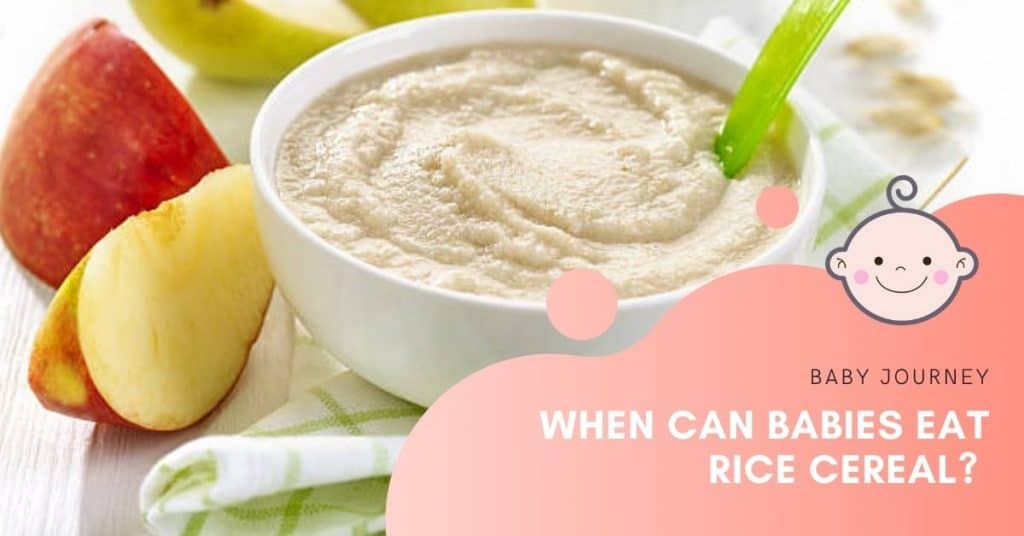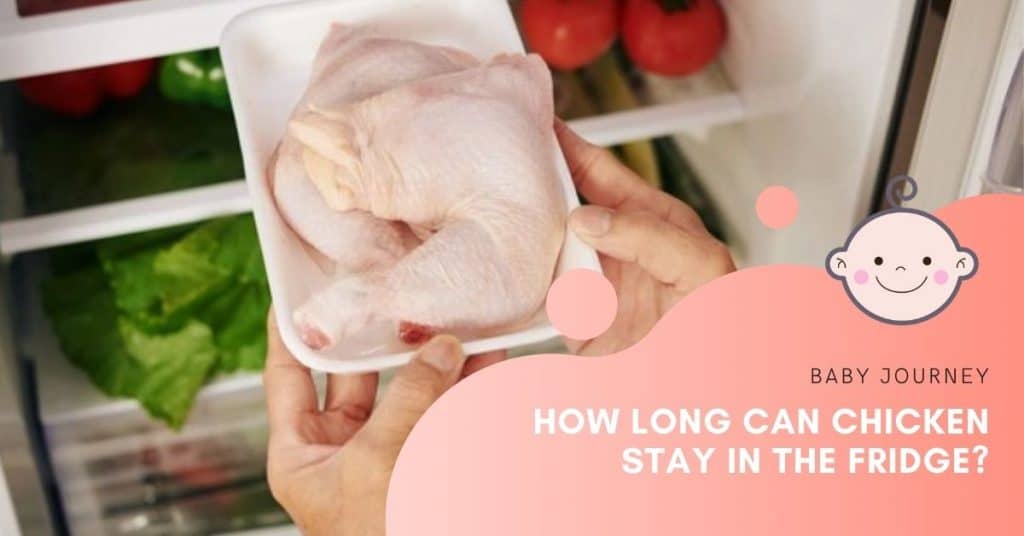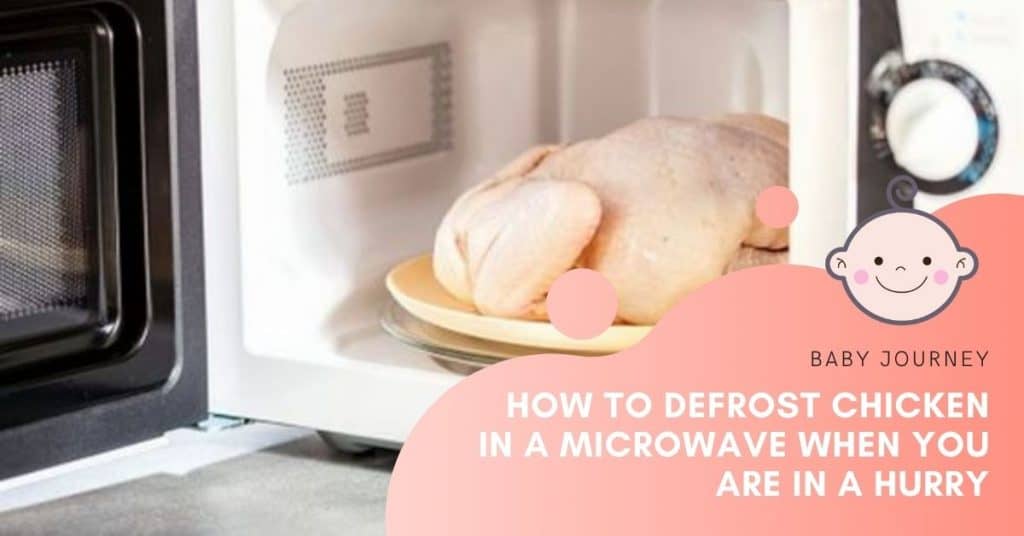As your baby approaches six months, they may begin eating more solid foods. One of the first foods babies eat is rice cereal. Therefore, parents usually wonder when can babies eat rice cereal?
Rice cereal used to be a very common first food, but nowadays some parents are choosing to offer other foods first. We will cover everything you need to know about starting babies on rice cereal and a few alternative kinds of cereal.
- What Is Rice Cereal & Is It Safe For Babies?
- When Can Babies Eat Rice Cereal?
- Signs Your Baby Is Ready To Start Rice Cereal
- How To Introduce Rice Cereal To My Baby?
- How Often Should I Feed My Baby Rice Cereal?
- How Do I Know If My Baby Is Allergic To Rice Cereal?
- Rice Cereal Alternatives
- Best Baby Cereals For First-Time Feeding
- Common FAQs
- Ready for Rice Cereal?
What Is Rice Cereal & Is It Safe For Babies?
Babies are usually fed exclusively breastmilk or formula for their first few months of life. The American Academy of Pediatrics (AAP) recommends parents give babies only milk or formula from birth to six months. [1]
But it isn’t unheard of to hear parents asking when can you put cereal in a baby’s bottle? This is because rice cereal isn’t commonly thought of as a “first food” but instead of a thickener.
Rice cereal refers to manufactured baby food that uses rice as a base. The list of ingredients depends on the manufacturer. It comes as a powder and thickens into a soft cereal when liquid is added.
Pediatricians used to recommend starting babies on rice cereal as early as four months, and they would give the “okay” for young infants if parents asked when to give baby cereal in milk.
But today, many experts are advising against rice cereal. In fact, one study states that the FDA warns parents against feeding babies rice cereal. [2] This is because rice can contain high levels of arsenic. Infants who ingest two servings of rice cereal a day may double their lifetime cancer risk said the study.
This is also the reason why brands like Serenity Kids make great efforts to educate parents on baby foods that are susceptible to heavy metals and introduce grain-free food options as the better alternative. Regardless, parents should thoroughly research rice cereal and discuss it with their child’s pediatrician prior to feeding it to their baby.
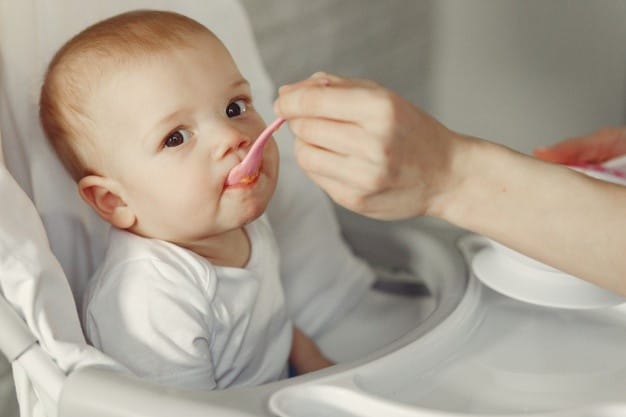
When Can Babies Eat Rice Cereal?
Parents were historically advised to start rice cereal around four months. Then, recommendations changed to starting first foods around six months. Now, rice cereal is beginning to fall out of favor due to a question of its safety.
Whether or not rice cereal is safe, depends on your idea of safety. There are many rice cereal products on the shelves of grocery stores. In most cases, feeding them to your child in moderation won’t hurt them.
Some doctors still recommend thickening bottles with rice cereal or starting babies on rice cereal as a first food. However, there may be better options out there depending on your child’s age.
Rice Cereal Safety Based on Age
Rice cereal for newborns is not advised because infants’ digestive systems are too immature and can only handle breastmilk or formula.
Rice cereal at 2 months is also ill-advised because their digestive systems are still developing. Some pediatricians may recommend it as a bottle thickener for severe reflux at this age, but you must discuss it with your doctor first.
Baby cereal at 3 months follows the same guidelines, it is not recommended and sometimes given under a doctor’s guidance to baby’s with reflux issues.
What about rice cereal for 4 month old? Still not a great choice. Even rice cereal for 5 month old isn’t often prescribed by a doctor. Under the AAP guidelines, an infant should only consume breastmilk or formula for the first six months of their life.
If you give your baby rice cereal or other solids too early your baby faces some notable risks. [3] They could aspirate the food, or accidentally suck it into their airway. They could fill themselves up on solid food and miss out on important calories and nutrition only found in breastmilk or formula. Finally, it could put them at greater risk of future obesity.
The ideal rice cereal age is six months or older and depends on a few factors.
Signs Your Baby Is Ready To Start Rice Cereal
When can you start feeding a baby rice cereal? That depends on their readiness. Your child may be ready for solid foods if they demonstrate the following:
- They can control their neck and head
- They can sit upright in a highchair by themselves
- They don’t push out food with their tongue
- They can move food from the front to the back of their mouth (this skill appears around 4 months typically)
- They express an interest in food
How To Introduce Rice Cereal To My Baby?
If you decide you and your child are ready to experience your first time feeding baby rice cereal,then review these tips for how to introduce rice cereal.
- Make sure your child is ready
- Mix 1 to 2 tablespoons of rice cereal with 4 to 6 tablespoons of breastmilk, formula, or water.
- Generally, babies like it warm and thin the first few times
- Spoon feed your child slowly
- Allow them to taste and experiment with moving the food in their mouths
- They may not eat much at first
- It is best to nurse or bottle-feed first and then offer rice cereal
Speaking of bottle feeding, is it bad to put baby cereal in a bottle? Usually, yes. The CDC recommends against putting cereal in a bottle. [4] So the answer to the question of when to give babies rice cereal in bottle is don’t unless recommended by a doctor.
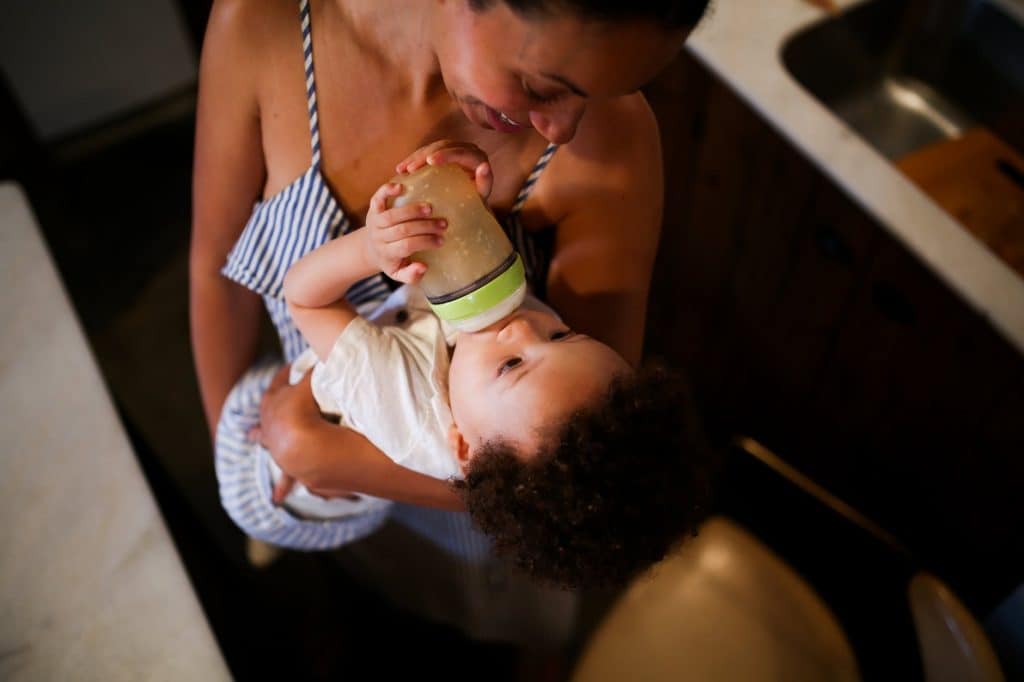
How Often Should I Feed My Baby Rice Cereal?
So you started solids, and now you wonder, how often should I feed my baby rice cereal? You can try rice cereal once or twice a day. But remember, the FDA advises against feeding babies rice cereal for very long due to the arsenic content.
Rice cereal, unless it is iron-fortified, really doesn’t have any nutritional content. Once you think that your baby has gotten the hang of solids, you should move on to other first foods.
How Do I Know If My Baby Is Allergic To Rice Cereal?
If your baby is allergic to rice, they may show the following symptoms when given rice cereal.
- Rash in the form of hives or welts
- Flushed skin
- Swelling of the lips, tongue, or face
- Diarrhea or vomiting
- Coughing or wheezing
- Difficulty breathing
- Loss of consciousness
If you think your child is having an allergic reaction you should contact their doctor. If the reaction is life-threatening, you should call 911.
Rice Cereal Alternatives
Today we know that other foods can serve as great first foods. Baby cereal doesn’t even have to be your child’s first solid. However, if you want to go that route there are other infant cereals such as oatmeal or quinoa.
Other great first foods include avocado, banana, sweet potato, or apple. These should be pure and not mixed with other ingredients or sweeteners. They should be boiled until they are soft and finely pureed. You can mix them with formula or breastmilk to thin them.
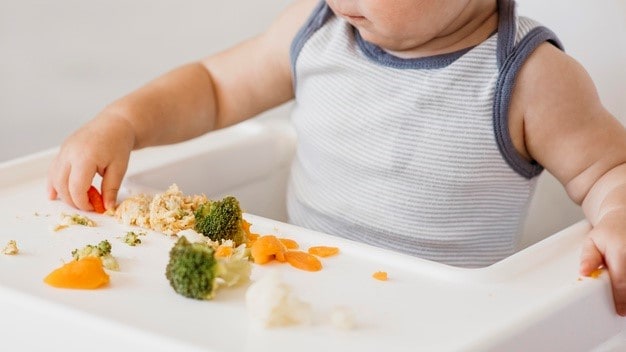
Best Baby Cereals For First-Time Feeding
You may be wondering about the best baby rice cereal for your child, especially when it’s going to be their first time taking. These two are among the popular cereals for starters:
- Earth’s Best Organic Infant Rice Cereal is made with organic whole grains. It is iron-fortified which can boost infant growth and development. There are no colors, preservatives, GMO ingredients, or artificial flavors.
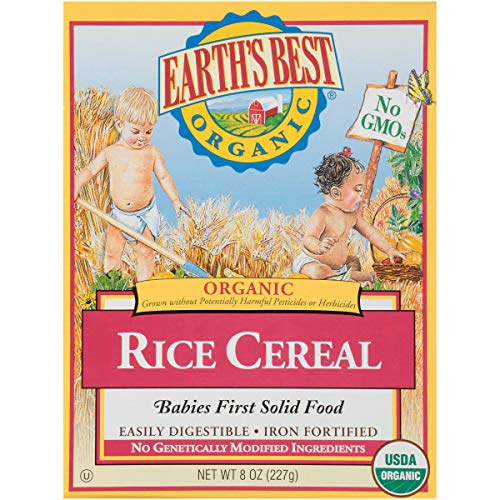
- Gerber Baby Cereal has Vitamins C, E, Zinc, B Vitamins, Calcium, and Iron. There are no artificial colors or flavors. As a single-grain cereal, it can be a great way to start solids to check for food sensitivities.
If you’re worried about arsenic in your baby’s food and want to avoid it at all cost, here are two great non-rice cereal options:
- Happy Baby Organic Oats and Quinoa cereal is one of the most popular choices by parents as baby’s first cereal. An iron-fortified cereal, it is non-GMO and gluten-free, and it’s also certified organic!
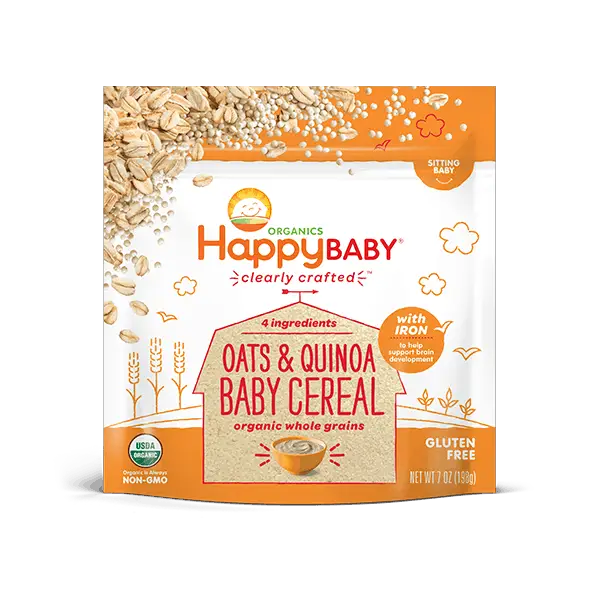
- Beech-Nut Multi-Grain Cereal is a cool way to feed your baby solids for the first time. This non-GMO cereal is made with whole grain flour from oat, wheat and rice, which you can easily mix in breast milk or formula into the cannister. It’s suitable for infants from 4 months or older.
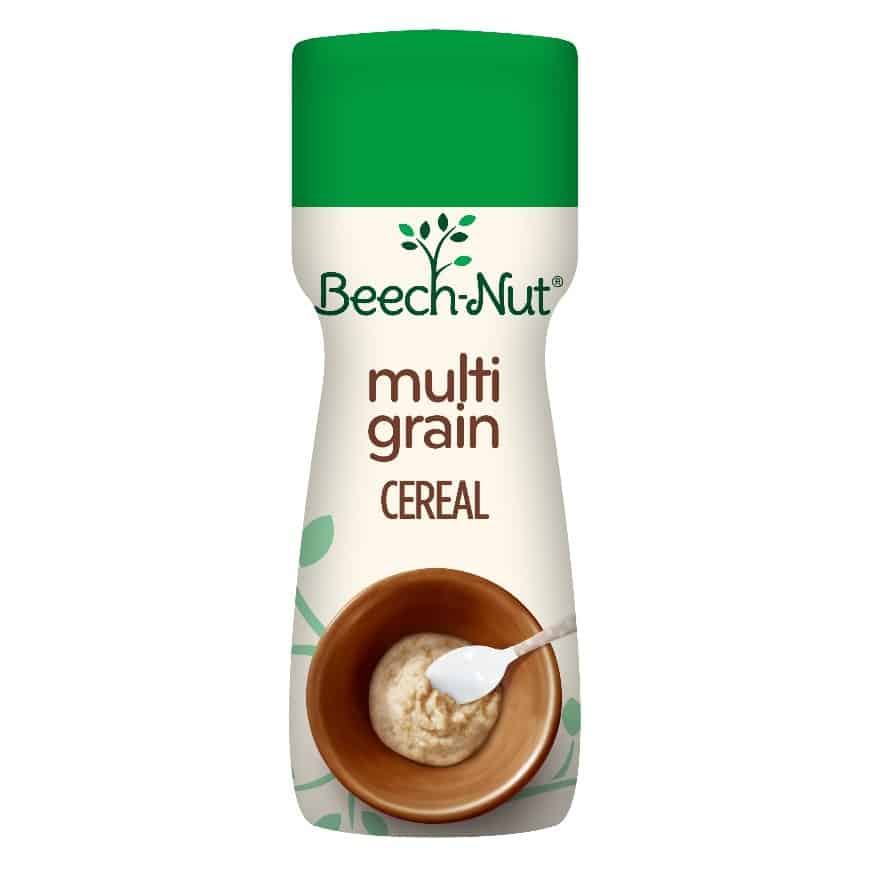
Common FAQs
Does putting rice cereal in a bottle help baby sleep?
No, putting rice cereal in a bottle does not help babies sleep. If you’re questioning, how much rice cereal for a 3-month-old to get them to sleep? Don’t do it! Rice in a bottle doesn’t equal a solid night’s sleep.
Can I use rice cereal to thicken breast milk or formula?
You should not use rice cereal as a thickener unless advised by your doctor to do so.
Should I start my baby on rice cereal or oatmeal?
You can start your baby on whichever you prefer and have discussed with your child’s doctor. Some parents don’t start with grain at all but instead, begin with a fruit or vegetable in the form of baby food puree.
Does rice cereal cause constipation in babies?
Rice cereal may cause constipation in some children.
Can rice cereal cause gas?
Rice cereal may cause gas. Gas along with other symptoms could be a sign of an adverse reaction.
When do babies stop eating baby cereal?
Because of the arsenic content, the FDA doesn’t recommend feeding rice cereal to babies for long. Once your child has been introduced to solids, you should move on from rice cereal.
Ready for Rice Cereal?
Rice cereal was once commonly recommended as an infant’s first food, sometimes as early as four months. It was also added to bottles in hopes to make babies sleep longer or control reflux.
Today we know that there are better first foods and that rice cereal contains arsenic, which can be harmful to your baby in large doses. Before beginning rice cereal or any solid, make sure your child is ready for food. You can slowly introduce rice cereal so they can experience the texture of solid foods, then move on to other offerings.
That’s a wrap on our guide! Hope you have a better idea now on when can babies eat rice cereal – it’s six months onwards – and know the signs to watch out for when your little one is ready for rice cereal.
Have questions or thoughts on rice cereal? Share them in the comments!
—
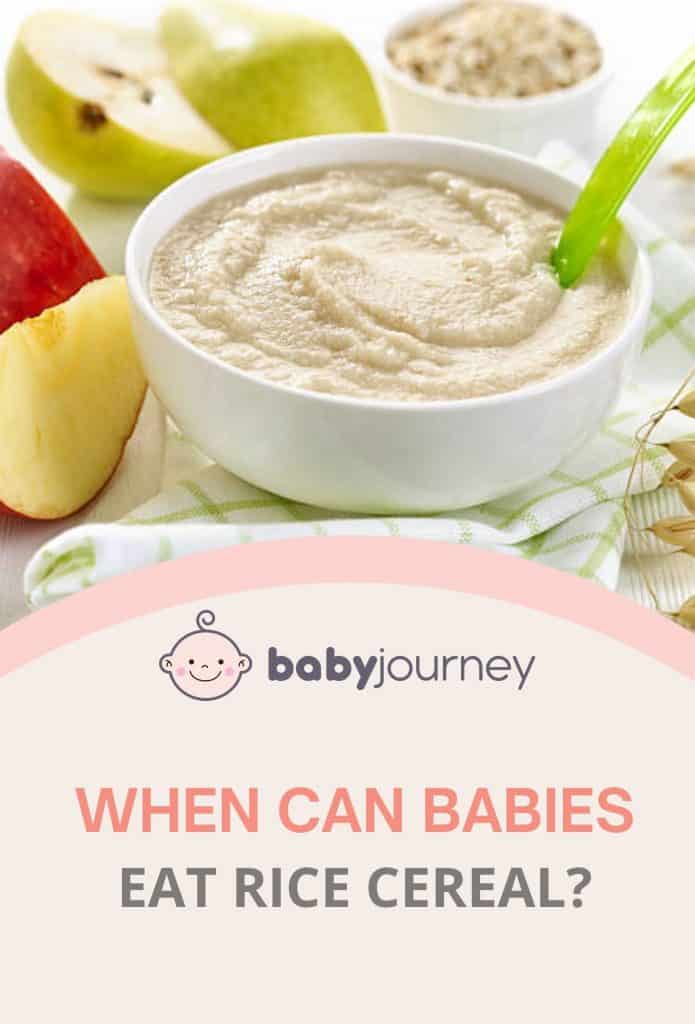
Last update on 2024-04-19 / Affiliate links / Images from Amazon Product Advertising API

